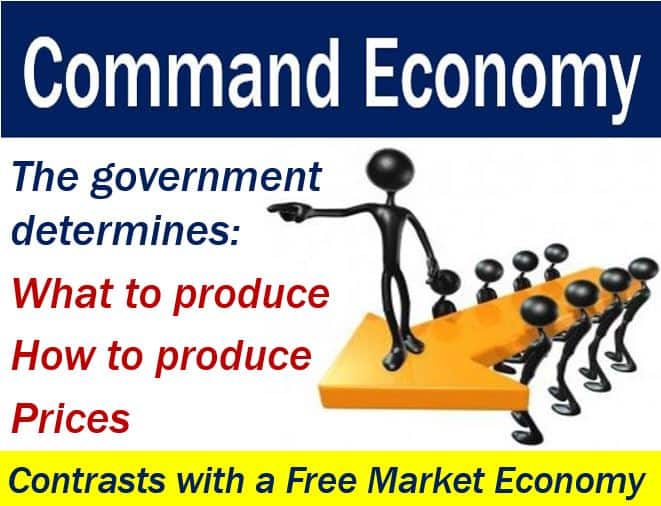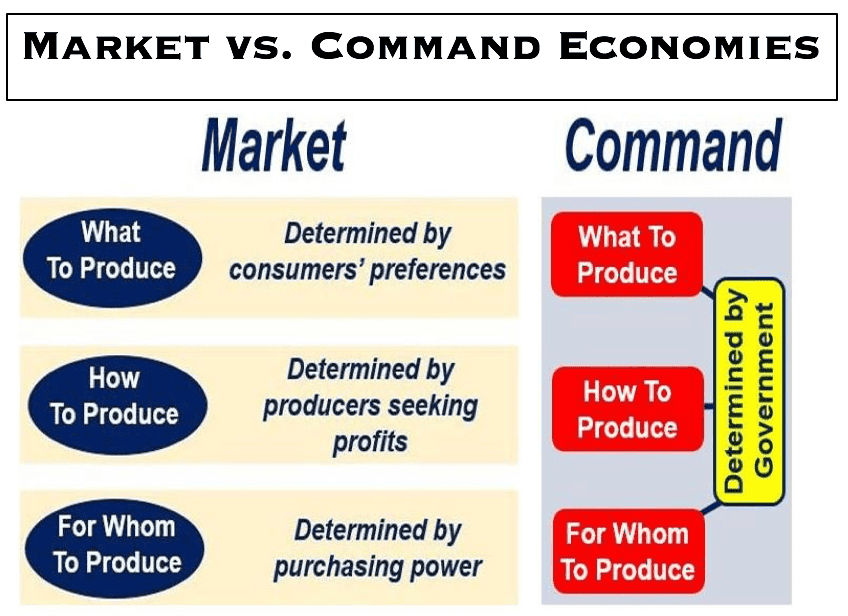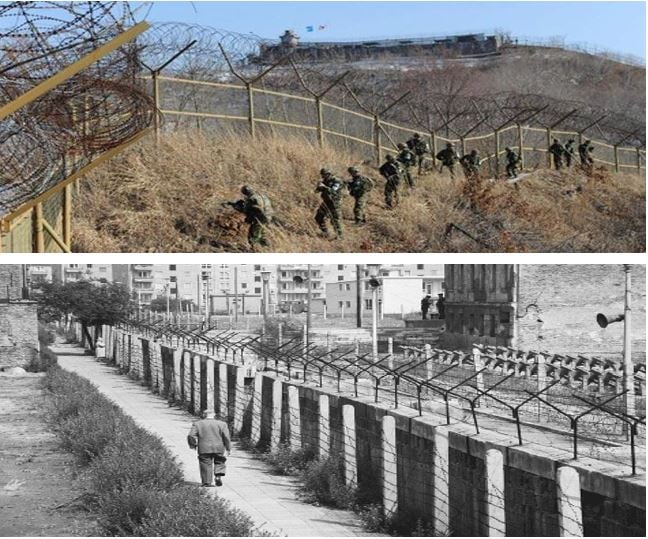A Command Economy is an economy that the government controls. The government controls the supply of goods and services. The state, rather than market forces, controls their prices. A command economy contrasts with a free market economy. In a free market economy, market forces determine prices. ‘Market forces’ refers to the forces of supply and demand.
In a command economy, the government has planners. The planners determine which goods and services to produce or supply. They also decide on their distribution.
Communist countries like Cuba or North Korea are examples of command economies. The Soviet Union and its satellite states in Eastern Europe had command economies until the late 1980s.
We also call it a controlled economy, planned economy, or centralized economy. A market economy, laissez-faire economy, or free market economy are the opposite.
Government decides
In a command economy, the government decides on prices. On the other hand, in a free market economy, market forces – supply and demand – determine prices.
At each end of the spectrum, there are opposite approaches to how the economy works. At one end there is the top-down, centrally-planned economy of communism. In other words, the command economy.
At the other end, there is the decentralized economy of the free market. In other words, the market economy.
Most nations that claim to have a free market economy do not. They are, in fact, mixed economies.
For example, the United States claims it has a free market economy. However, during the 2007/8 financial crisis, the US government bailed out some banks. In a free market system, the government would not have intervened. Hence, the United States has a mixed economy.

The most fundamental difference between the market and command economies is private property. Private property exists in market economies, but not in command economies.
Is a command economy sustainable?
Supporters say the command economy is better. They claim it is better because planning makes it fairer for everybody than in a market economy.
However, time has demonstrated that this view is mistaken. In fact, planning in the market economy is very rational. Consumer demand regulates the market economy through the price system.
Attempting to plan a whole economy with about 300 civil servants in a central committee is unsustainable. It is unsustainable because the task is so immense.
How can a group of planners predict what their people need? They can’t.

The command economy is a collectivized system. All work is for the benefit of each worker’s share of total production. There are no individual incentives.
Put simply; hard-working employees or those who do extra hours do not get more money.
The market economy finds a way
The most common negative features of a command economy are shortages, rationing, and lack of choice. That is why the black market thrives in such an environment.
All the communist countries have had one thing in common. They have all had huge black markets. When there are shortages, people resort to the black market for their supplies.
The black market is an example of the free market finding a way regardless of the environment around it.
Which system works better?
Why did they build the Berlin Wall in Germany? Why is the border between North Korea and South Korea full of soldiers and land mines?
Their function is to stop citizens of communist countries from leaving. The Berlin Wall was not there to stop people from West Germany emigrating to East Germany. It was there to stop East Germans from emigrating to West Germany.
East Germany was communist while West Germany was a free market democracy.
People in a free market economy have a better standard of living than those in a command economy.
In other words, West Germans and South Koreans lived/live better than their counterparts in East Germany and North Korea.

A command economy gradually loses its democratic features and ends up being a dictatorship.
Not one European market economy (or mixed economy) has become a command economy over the past sixty years.
However, nearly all the former Soviet satellite states in Eastern Europe are market economies (or mixed economies) today.
